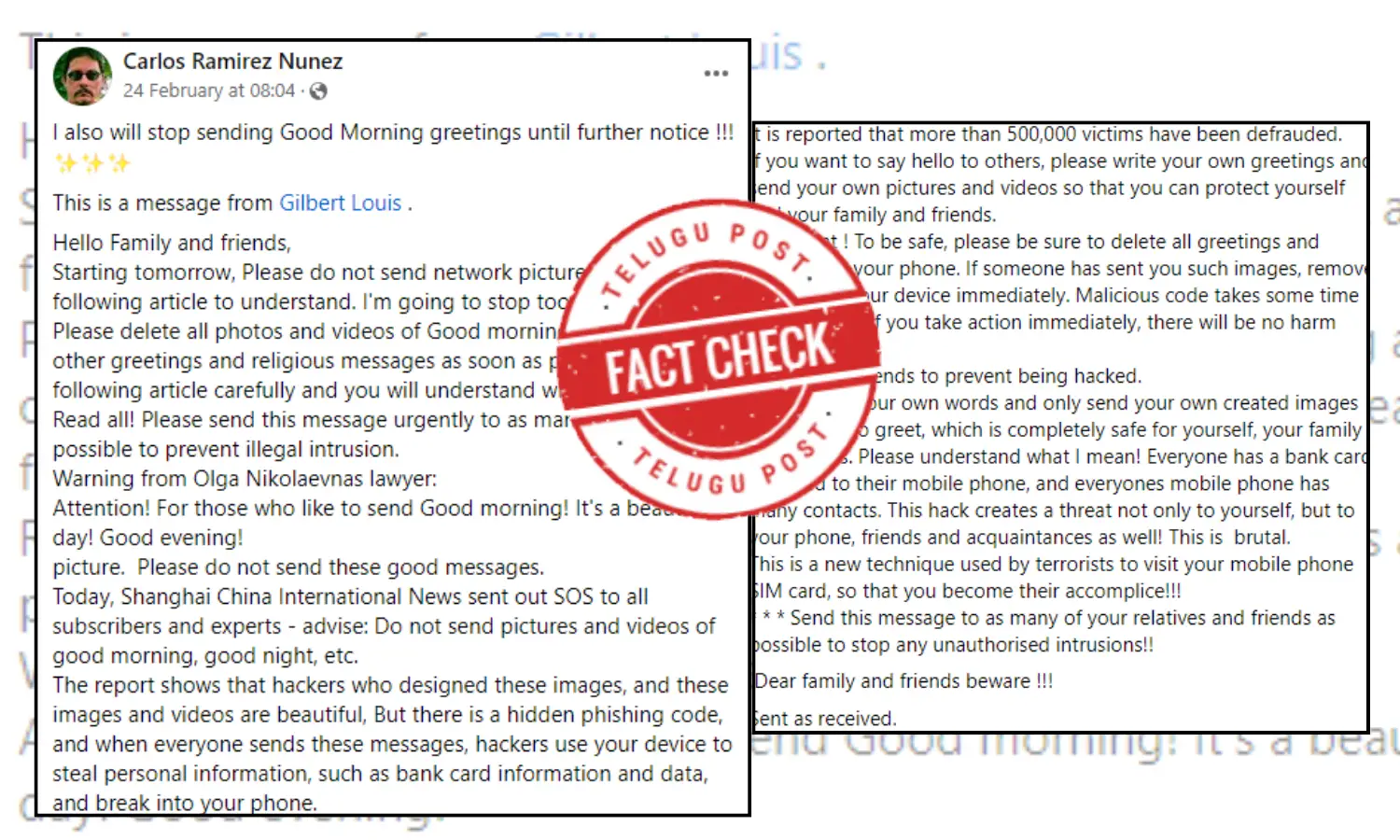Fact Check: Good morning, good evening messages on WhatsApp cannot facilitate phishing attacks
Good morning, good evening messages on WhatsApp cannot facilitate phishing attacks;

A message posted by Olga Nikolaevna, a lawyer, is circulating on social media, claiming that sending "Good morning" WhatsApp forwards can expose users to phishing attacks.
One of the paragraphs of the post read, “Today, Shanghai China International News sent out SOS to all subscribers and experts - advise: Do not send pictures and videos of good morning, good night, etc.
It also states that hackers design these images and videos to appear beautiful, but there is a hidden phishing code. When these messages get forwarded from one to the other, hackers use your device to steal personal information, such as bank card information and data, and break into your phone.”
Click here to view .
Fact Check:
The claim is false.
The viral post says the message comes from 'Shanghai China International News,' but there's no proof this news source exists. We also checked if there exists a lawyer named Olga Nikolaevna but we couldn't find any such name. The only thing that came up online is a Russian Duchess with the same name.
We searched for reports on "Good Morning" and "Good Night" messages, including those with videos and pictures, but we didn’t find any. Additionally, we couldn't locate any news reports or headlines addressing this issue as a significant scam impacting millions of people.
We also checked the websites of the Indian Computer Emergency Response Team (CERT-In) and the Ministry of Electronics and Information Technology for any warnings about this threat. However, we found no advisories related to it.
We also found that messages like these have been on social media since 2017 showing that the news is old. The Star, a news portal in Malaysia, debunked the same hoax message in 2018, labelling it fake.
Further, we found that the practice of hiding confidential information within a data source is termed Steganography. This method involves concealing malware or phishing URLs within text files, images, audio, and video, frequently evading detection from conventional malware detection tools.
A phishing attack is a type of social engineering scam where attackers attempt to trick someone into revealing sensitive information, such as passwords, credit card details, or personal data. They often use deceptive emails, text messages, or fake websites that appear to be legitimate.
How to avoid phishing attacks:
• Be cautious of unexpected emails, text messages, or website links, even if they seem familiar.
• Don't click on suspicious links or attachments.
• Verify the sender's identity before responding to any communication.
• Never enter your personal information on a website unless you are sure it's legitimate.
• Use strong and unique passwords for all your online accounts.
• Be wary of urgent requests or offers that seem too good to be true.
• If you ever suspect a phishing attempt, don't respond and report it to the appropriate authorities.
Hence, the claim is false. Such messages have been in circulation on social media since 2017. No official reports or government statements confirm hackers stealing private information through greetings like "good morning" or "good evening”.

